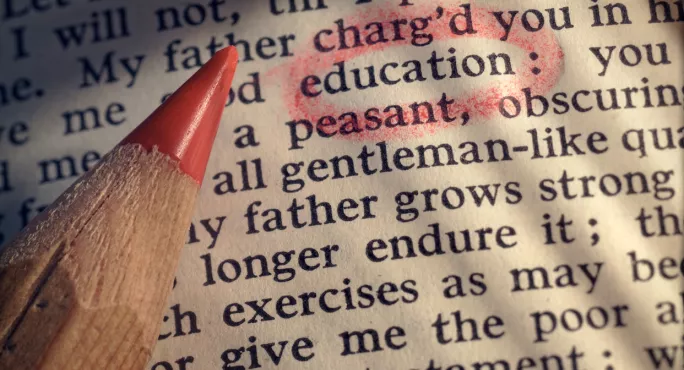Introducing pupils to complex works from Dickens and Shakespeare “too early” is misguided, according to a reading expert and researcher.
Alex Quigley, - the writer of Closing the Reading Gap, a research-based book on how to improve pupils’ reading skills - told Tes that teaching GCSE texts to key stage 3 pupils so that they developed familiarity with difficult authors was “wasteful of precious curriculum time”.
Related: Pupils struggle to relate to Shakespeare, survey finds
Opinion: ‘Our poorest pupils suffer when we replace Dickens with the Wimpy Kid’
Alex Quigley: How to build a strategy for teaching reading
“In many schools, teaching complex texts too early is common. I think Dickens and Shakespeare should be left as late as possible,” he said.
“There is lots of practice where teachers report doing GCSE texts and topics in KS3 just for familiarity - knowing full well it is probably too hard to understand fully at this stage. I think this is wasteful of precious curriculum time.”
He said one likely cause of this was a lack of knowledge regarding “pre-complex” alternatives. In a researchED lecture, Mr Quigley cited US educator Doug Lemov and his ideas of using age-appropriate books to introduce pupils to the ideas they will encounter in more complex texts later on.
Mr Quigley used the example of reading a picture book of Dickens stories with his young son as a way of showing how pupils can be introduced to valuable information in an accessible way. He said schools should use young adult books at key stage 3 with similar themes to Shakespearean plays they would encounter later on, citing how Bali Rai’s Rani and Sukh could be used to introduce pupils to the themes of Romeo and Juliet.
”I think in secondary schools, we can often see a solution that if we just read the text earlier, and read it again maybe, that that will mediate the complexity, and I think that’s a suboptimal approach and that we should try and leave Romeo and Juliet for an apt approach and read it as late as possible, but try and support our novice readers to read pre-complex texts,” he told researchED.
Mr Quigley told Tes that the “pressure of exam readiness” was a further likely cause of teachers introducing complex narratives too early.
“Alas, doing GCSE texts a year or two too early will invariably require re-teaching and that any gain of doing the exam text a year early is short-lived and likely to represent only a shallow understanding.
“If a text is too hard, with students grappling to make sense of so much - eg, Hamlet in Year 8 - then their working memory will be overwhelmed and they’re much more likely to forget what they have been taught. Just knowing the characters of Macbeth rather superficially from a Year 9 exposure is unlikely to pay dividends with more thorough analysis a year later.
“If SLTs remove the burden of too-early predictions and mock assessments, students and teachers will be freed to build a curriculum that has a Goldilocks degree of difficulty throughout each year of school,” he added.




